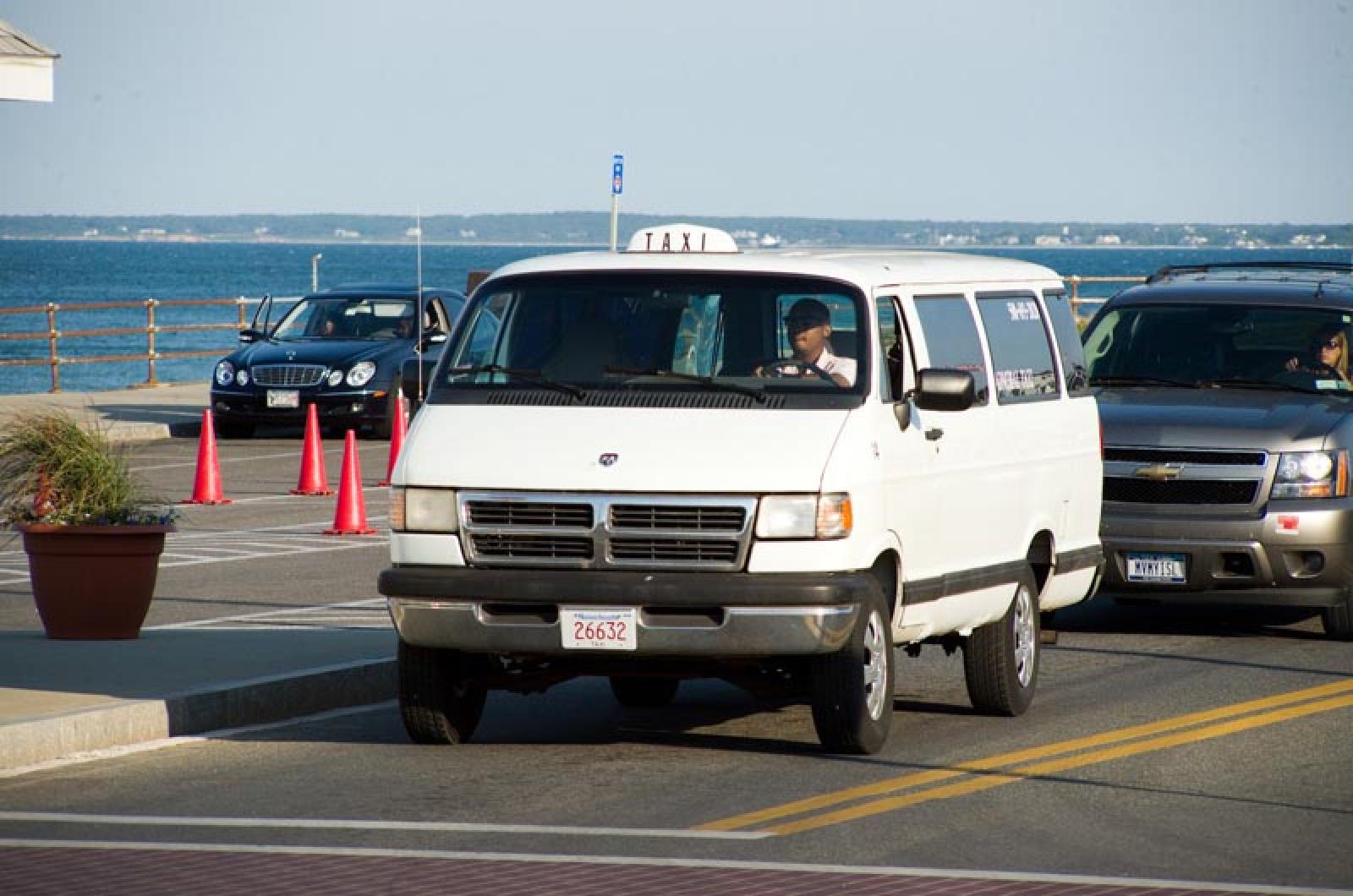Uber, the ride sharing service which has disrupted the taxi industry in cities all over the world, is testing the waters on Martha’s Vineyard.
The company began advertising for drivers this week. While there are no firm plans to expand Uber service to the Island, if the company finds enough interest, there could be Uber drivers competing with cabs and car services as soon as this summer.
Island cab companies fear Uber will quickly put them out of business. They see Uber as unfair competition, with drivers who don’t have to comply with the same regulations they do, and they have strong feelings about it.
“The CEO of Uber wants taxi companies dead, and the feeling is mutual,” said Benoit Baldwin, owner of Alpha Taxi based in West Tisbury. “There will be a significant reduction in business wherever Uber is allowed to operate.”
“It’s going to kill us,” said Jim Hickey, owner of Bluefish Taxi and Aquinnah Taxi. “Especially a company like mine. It will be a slow death.”
Uber was founded in 2009 and has enjoyed explosive growth. Already valued at $40 billion by investors, it operates in 56 countries.
The company is known for moving quickly into new areas.
“As we do in all areas where we’re not currently operating, we run ads to see if anyone is interested in signing up to be a driver,” said Uber spokesman Craig Ewer. “We’re at the very early stage,” he said of any plans for Martha’s Vineyard. “We tend to move as fast as we need to.”
The service works through a free smartphone app. People who need a ride can contact an available driver and arrange a pickup. The app shows the driver’s location on a street map, and estimates the time the car will arrive. Pricing varies in different locations, based on a combination of time and distance. During peak hours, Uber institutes “surge pricing.” Riders have to pay more, and in theory, the higher prices are an incentive for more drivers to work. Uber earns money by taking a percentage of the fare. Drivers set their own hours, so unlike taxis, there is no guarantee a ride will be available at odd times of day. Both drivers and riders rate each other after each ride.
Uber has faced staunch opposition from taxi companies in many of the areas where it operates, but it has proved extremely popular with riders. In Massachusetts, Gov. Charlie Baker and former Gov. Deval Patrick have both been receptive to ride sharing services.
“We must continue to embrace technology and innovation as a means for growth,” Governor Baker said in a press release. “We also have a responsibility to step up to ensure consumer choice and public safety prevail, and that Massachusetts continues to develop as a global destination for business and tourism.”
The Baker administration is crafting a licensing framework, based on regulations issued by the Registry of Motor Vehicles. The regulations, which went into effect in January, classify ride sharing services as transportation network companies. They require drivers be at least 21 years old with a valid driver’s license and proof of insurance. They must also undergo a criminal records check. Any applicant with more than three minor traffic violations in the preceding three years, such as speeding, defective equipment, or lane violations, is disqualified from getting a license. Anyone with a major traffic violation on their record, such as operating under the influence of drugs or alcohol, operating with a suspended licence, or leaving the scene of an accident, is also disqualified. Regulators aim to have the licensing procedure in place by mid-summer, and ride sharing companies are cleared to continue operating while the state works on the system.
On the Island, taxi companies are regulated by either a town’s board of selectmen, or its police department, which issues licenses, enforces safety rules and sets prices. Talks have been under way for years about creating uniform taxi regulations for the Island, but to date no such rules have been adopted.
It’s unclear whether ride sharing services would fall under a town’s jurisdiction. The issues are certainly on the minds of selectmen and police departments across the Island.
“People are aware that Uber is trying to get a foothold,” said Oak Bluffs police Lieut. Timothy Williamson. “I guess some cab companies aren’t too happy. They’re trying to see what they can do to stop it, but there’s not much they can do. It seems like it’s inevitable.”
Mr. Baldwin and Mr. Hickey are looking to local government to keep Uber off the Island.
“It’s new, it’s trendy, it appeals to the Facebook generation,” Mr. Hickey said. “I get that. I’m hoping selectmen will step up, or police will step up to stop it. The taxi business is already saturated, there is way too much competition. We’re barely holding on as it is.”







Comments (91)
Pages
Comments
Comment policy »